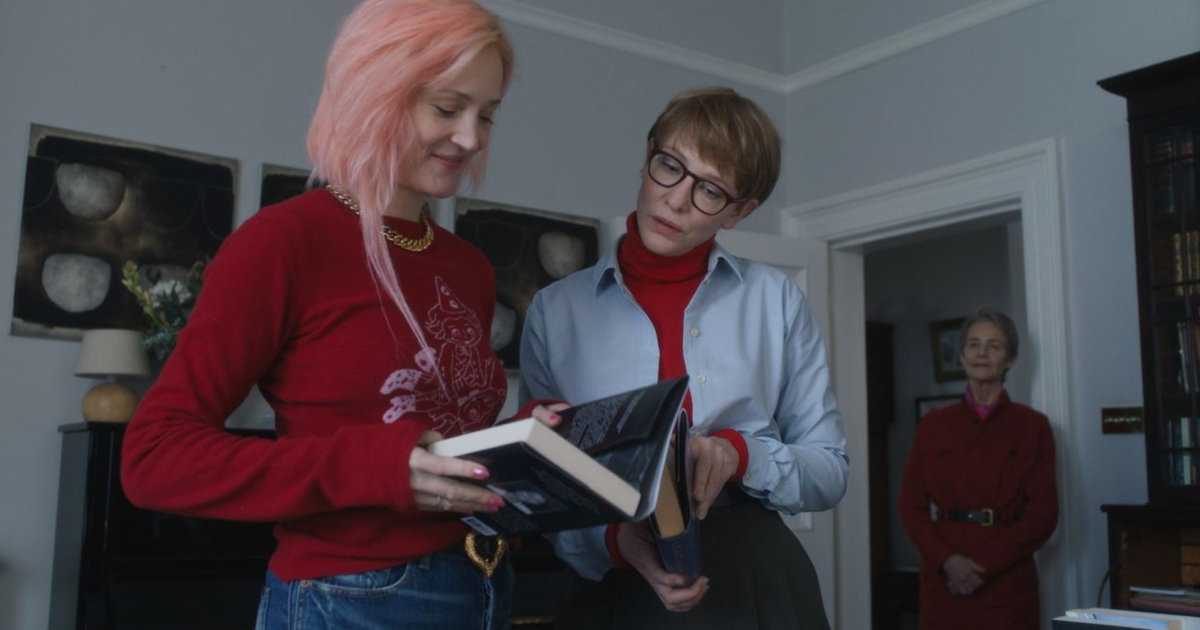Jim Jarmusch was put on the spot about his feelings over distributor Mubi’s controversial ongoing relationship with Silicon Valley-based private equity firm Sequoia Capital at the press conference for his Venice Golden Lion contender Father Mother Sister Brother on Sunday.
The U.S. director is among hundreds of filmmakers to have signed an open letter calling on the company to hand back a $100 million investment from the investment firm due to its backing of a number of Israeli defence-tech start-ups.
Mubi has North America rights for Father Mother Sister Brother as well as in a number of other territories, while the company’s subsidiary The Match Factory has traditionally sold all of Jarmusch’s films.
The director said he had spoken to Mubi about the issue and that the company’s partner and Chief Content Officer Jason Ropell had called him directly shortly after the letter was published.
“My relationship with Mubi was started much before that, and they were fantastic to work with on this film. I was, of course, disappointed and quite disconcerted by this relationship, and I think really, if you want to discuss it, you have to address Mubi about it. I’m not the spokesman,” he said.
“However, yes, I was concerned. I also have a distribution agreement with Mubi for certain territories, which I had entered into before my knowledge of this, but having said that, on a personal level, I have to say I’m an independent filmmaker, and I have taken money from various sources to be able to realize my films and I consider pretty much all corporate money is dirty money.”
“If you start analyzing each of these film companies and their financing structures, you’re going to find a lot of nasty dirt. So it’s all there. We could avoid it and not make films at all, but the films are what I choose to carry things I would like to say.”
Jarmusch added, however, that it was not fair to the onus on filmmakers to address the issue of Mubi’s sources of finance.
“The artists, it’s not us, it’s Mubi, you must address concerning this, and not just Mubi, but other companies as well,” he said.
In the original open letter, the signatories highlighted Sequoia Capital’s growing investments in Israeli military technology companies.
It cited Kela Technologies, which was founded in the wake of the October 7, 2023, Hamas attack on Southern Israel, in which more than 1,200 people were killed and 251 were taken hostage. Others referenced included military drone manufacturer, Neros, and the unmanned aerial vehicle manufacture, Mach Industries.
The filmmakers suggested these investments tied Mubi to the ongoing violence in Gaza, where more than 63,000 people have been killed in Israel’s retaliatory military campaign and mission to retrieve the remaining Israeli hostages.
The deepening humanitarian crisis in Gaza is a hot button issue at this edition of the Venice Film Festival, which is unfolding six weeks shy of the second anniversary of the October 7 attacks.
Hundreds of protestors made up of largely of local political and grass-root groups, and a smattering of accredited festival guests, marched across the Venice Lido on Saturday in support of Palestine and to denounce Israel’s ongoing war in Gaza.
They were barred from entering the festival complex but after a brief stand-off turned around and peacefully dispersed.
Father Mother Sister Brother is constructed in the form of a triptych, the movie tells three stories exploring relationships between adult children, their somewhat distant parent (or parents), and each other. Each of the three chapters takes place in the present, and each in a different country.
Written and directed by Jarmusch it gathers a starry ensemble cast featuring Tom Waits, Adam Driver, Mayim Bialik, Charlotte Rampling, Cate Blanchett, Vicky Krieps, Sarah Greene, Indya Moore, Luka Sabbat, and Françoise Lebrun.
The film is presented by Mubi, Saint Laurent by Anthony Vaccarello and The Apartment (a Fremantle Company), in association with Jarmusch’s badjetlag and Gillibert’s CG Cinema, Cinema Inutile, Films du Losange and Weltkino.
Source link


